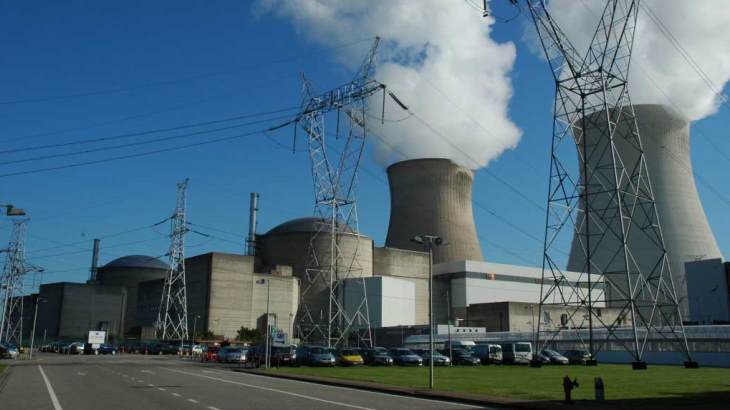
"This agreement aims to ensure a balanced distribution of risks between the two parties and to eliminate uncertainties concerning future changes in provisions related to the treatment of all nuclear waste," they said in a joint statement.
Under a plan announced by Belgium's coalition government in December 2021, Doel 3 was shut down in September 2022, while Tihange 2 shut down at the end of January this year. The newer Doel 4 and Tihange 3 would be shut down by 2025. However, in March last year the Belgian government decided to start talks with Electrabel - the Belgian subsidiary of Engie - with a view to extending the operation of Doel 4 and Tihange 3, allowing for the retention of 2 GWe of nuclear generation capacity. In July, the government and Electrabel signed a non-binding Letter of Intent on continuing negotiations on the feasibility and terms for the operation of the reactors for a further ten years. The two sides aimed to agree a binding legal agreement by the end of December. On 9 January, a non-binding agreement in principle was signed that "concretises the elements" of the Letter of Intent signed in July.
The parties said the new interim agreement builds on the 9 January agreement and defines the terms for the extended operation of the two reactors.
It calls for "the commitment from both parties to use their best efforts to restart the nuclear units of Doel 4 and Tihange 3 as early as November 2026, or, subject to the effective implementation of an announced relaxation of regulations, as early as November 2025, with the aim to strengthen the security of supply in Belgium".
The agreement also says a legal structure will be established, jointly owned by the Belgian State and Engie, aligning the interests of both parties and guaranteeing long-term commitments.
A business model of the extension is also defined with balanced risk allocation, notably through a contract for difference mechanism with incentives for the operator to achieve favourable technical and economic performance at the plants.
It also defines an agreement on the fixed amount of future costs related to the management of radioactive waste - based on the work and expertise of Ondraf/Niras, the Belgian agency for the management of radioactive waste - covering all of Engie's reactors in Belgium, for a total amount of EUR15 billion (USD16.4 billion). This amount also includes a risk premium of 43% and is paid in two installments: in 2024 for intermediate and high-level waste to be disposed of in geological repository; and at the start of the extended operation of the reactors for low-level waste intended for surface storage.
This is in addition to the amounts already provided for the decommissioning of Engie's reactors in Belgium, for which the company bears the full costs. The total nuclear obligations of the Engie group towards Belgium amount to at least EUR23 billion euros. As a result of the transfer of all nuclear waste liabilities to the Belgian government, Engie will no longer be exposed to the evolution of future costs related to the management of waste.
The agreement has been approved by Engie's board of directors and by the Belgian government. The implementation of the agreement is planned for the end of July.
"After several months of intense and constructive dialogue with the Belgian government, we are pleased with the signing of this balanced agreement for both parties," said Engie CEO Catherine MacGregor. "It provides Engie with the necessary visibility on the total amount related to nuclear waste management and significantly reduces the risks linked to the extension of the two units. This is a new fundamental step towards the extension of Doel 4 and Tihange 3, for which Engie is fully and responsibly committed."
"The extension of the Doel 4 and Tihange 3 nuclear power plants by ten years has now been established," added Belgian Prime Minister Alexander De Croo. "This agreement is important for the security of supply of our families and companies. It strengthens our electricity supply, reduces our country's energy dependence and guarantees the production of carbon-free, affordable electricity in Belgium. I would like to thank the management of Engie for all the work over the past months to reach this agreement."